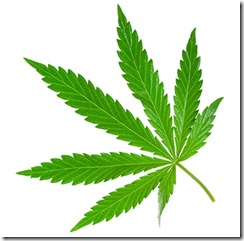 The Drug Enforcement Administration is concerned about a surge in the illegal shipment of marijuana from Colorado since the state legalized the drug, and is trying to crack down on minors’ use of the substance, the head of the agency said Wednesday.
The Drug Enforcement Administration is concerned about a surge in the illegal shipment of marijuana from Colorado since the state legalized the drug, and is trying to crack down on minors’ use of the substance, the head of the agency said Wednesday.
Administrator Michele Leonhart said the DEA is troubled by the increase in marijuana trafficking in states surrounding Colorado and worries that the same phenomenon could be repeated around Washington state, where recreational marijuana is expected to be sold legally soon. In Kansas, she said, there has been a 61 percent increase in seizures of marijuana from Colorado.
Speaking to the Senate Judiciary Committee, Leonhart said the softening of attitudes nationwide about the risk of marijuana has confirmed some of the agency’s fears.
“The trends are what us in law enforcement had expected would happen,” she said. “In 2012, 438,000 Americans were addicted to heroin. And 10 times that number were dependent on marijuana.”
The Obama administration released a memo in August saying it would not challenge legalization laws in Colorado and Washington as long as the two states maintained strict rules regarding the sale and distribution of the drug. In the memo, Deputy Attorney General James M. Cole stressed that marijuana remains illegal under federal law.
The Justice Department directed federal prosecutors not to target individual users but instead to focus on eight areas of enforcement. Those aims include preventing the distribution of marijuana to minors, stopping the drug from being grown on public land, keeping marijuana from falling into the hands of cartels and gangs, and preventing the diversion of the drug to states where it remains illegal.
DEA officials have expressed frustration privately about the legalization of marijuana by Colorado and Washington state, where local officials consider the change an opportunity to generate tax revenue and boost tourism.
But in January, James. L. Capra, the DEA’s chief of operations, called marijuana legalization at the state level “reckless and irresponsible,” and warned that the decriminalization movement would have dire consequences.
“It scares us,” he said during a Senate hearing. “Every part of the world where this has been tried, it has failed time and time again.”
Two years ago, nine former DEA administrators wrote a letter to Attorney General Eric H. Holder Jr. to express their concern about the states’ movements to legalize marijuana and urge him to oppose the ballot initiatives.
“To continue to remain silent conveys to the American public and the global community a tacit acceptance of these dangerous initiatives,” wrote the former administrators, who oversaw the DEA under Democratic and Republican presidents from 1973 to 2007.
On Wednesday, Leonhart spoke about why she thinks marijuana is dangerous. She said that marijuana-related emergency-room visits increased by 28 percent between 2007 and 2011 and that one in 15 high school seniors is a near-daily marijuana user. Since 2009, she said, more high school seniors have been smoking pot than smoking cigarettes.
Marijuana advocates say that concerns about the drug’s danger are exaggerated. In an interview with the New Yorker magazine, President Obama compared the use of marijuana to drinking alcohol.
“As has been well documented, I smoked pot as a kid, and I view it as a bad habit and a vice not very different from the cigarettes that I smoked as a young person up through a big chunk of my adult life,” he said. “I don’t think it is more dangerous than alcohol.”
Leonhart also spoke out in support of mandatory minimum sentencing for drug crimes, an issue Holder has highlighted recently as part of his initiative to reduce prison crowding and foster equity in criminal sentencing.
Holder has instructed his 93 U.S. attorneys to use their discretion in charging low-level, nonviolent criminals with offenses that impose severe mandatory sentences.
Leonhart, in response to a question from Sen. Charles E. Grassley (R-Iowa), said: “Having been in law enforcement as an agent for 33 years [and] a Baltimore City police officer before that, I can tell you that for me and for the agents that work at the DEA, mandatory minimums have been very important to our investigations. We depend on those as a way to ensure that the right sentences equate the level of violator we are going after.”
Source: Washington Post (DC)
Author: Sari Horwitz
Published: April 30, 2014
Copyright: 2014 Washington Post Company
Contact: [email protected]
Website: http://www.washingtonpost.com/





